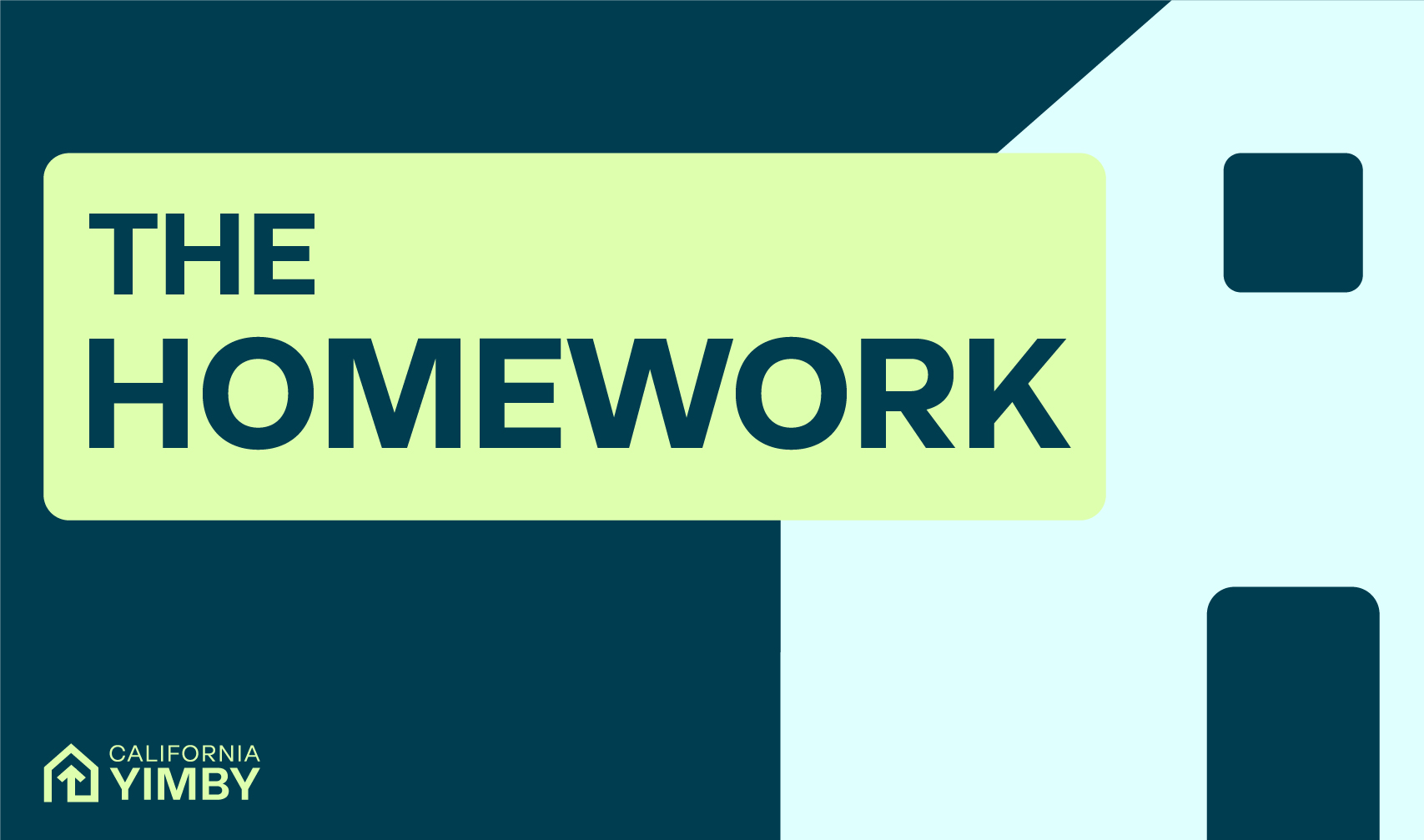The HomeWork: July 7, 2021

Welcome to the July 7, 2021 Main edition of The HomeWork, the official newsletter of California YIMBY — legislative updates, news clips, housing research and analysis, and the latest writings from the California YIMBY team.
News from Sacramento
Housing Research and Analysis
The White House Says: YIMBY
It’s official: Juneteenth is now a national holiday. While the historic recognition of the end of Black slavery is worthy of celebration, the White House Council of Economic Advisors isn’t pausing for the festivities: In a powerful review of the literature on exclusionary zoning and related, racially-inspired housing policies, the Biden Administration’s top economic minds explain how prohibitions on multifamily housing hold back progress and economic justice.
Key takeaways:
-
Exclusionary zoning is directly tied to racist segregation, as its earliest exponents sought to maintain existing segregation in all but name.
-
Maintaining restrictions on housing supply exacerbates the racial wealth gap and limits economic mobility, with direct disparities in long-term outcomes for children.
-
Biden’s American Jobs Plan would introduce a $5 billion grants program to reward cities that end exclusionary zoning.
Harvard’s State of the Housing Crisis
In a new report on the state of housing in the U.S., the Joint Center for Housing Studies at Harvard University finds that inequality and housing insecurity have been exacerbated under the COVID-19 pandemic, and urges government officials to step up support for vulnerable households squeezed out of the housing market.
Key takeaways:
- Low supply, high demand: a limited inventory of available homes was bid up by wealthier households who weathered the economic downturn. Over the past year, housing prices soared by 13% while the supply of homes for sale shrank by 3% nationwide.
- While homeownership is increasing, the racial disparities in homeownership continue largely unabated.
- Renters remain cost-burdened, and 17% of the nation’s renting households were behind on rent payments—another pattern showing stark racial disparities.
Houser Headlines
- AB 1401: I will trade parking for affordable housing
- AB 1401: City’s parking laws raise housing costs
- Amid housing crisis, CA must pass SB 9
- SB 10, SB 9, AB 1401: Housing fixes start at home
- Ordinary People Owning Homes at the Heart of Economic Recovery
- Wall Street isn’t to blame for the chaotic housing market
- Poll shows majority of San Jose residents support Opportunity Housing
- Much-needed housing held up over three parking spots
- Why protect county’s ‘character’ when new approach to housing improves it?
- Fire risk amid a housing crisis — California’s challenging new reality
Upcoming Events
July 8 @ 5PM: Making Urbanism Antiracist with Konstantin Hatcher
Konstantin Hatcher, the Organizing Director at California YIMBY, will sit down with YIMBY Action Executive Director Laura Foote to discuss the pro-housing movement — and how we can make it more inclusive and representative. RSVP here.
RSVP HERE »
YIMBY Social – Top Posts
.png)
Share the good word
We welcome your ideas and feedback — send story tips and ideas to Homework@cayimby.org.
Did someone forward this email to you? Sign up to get it here.